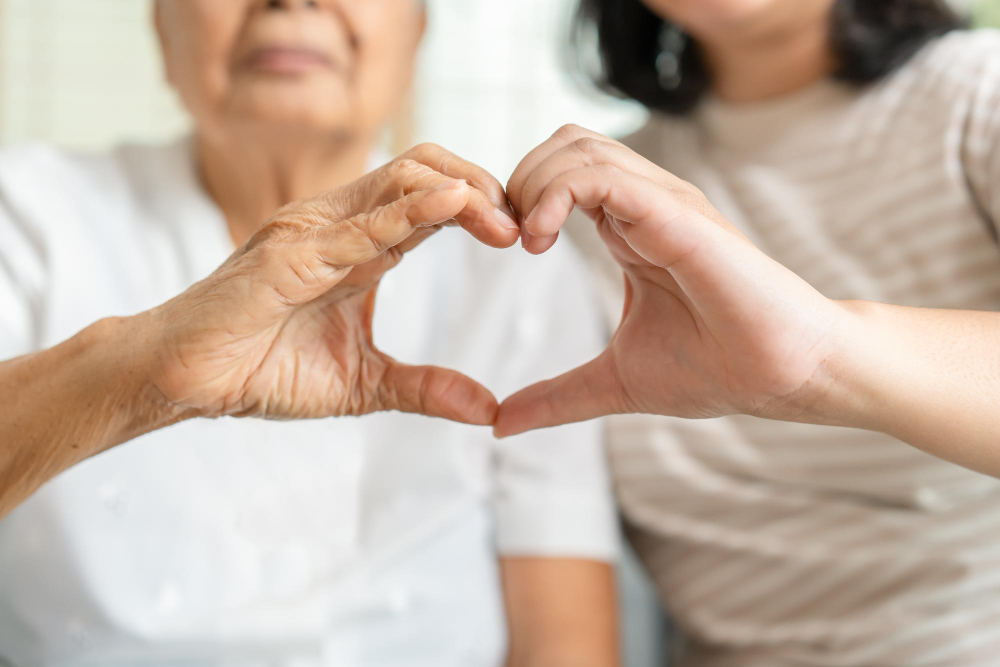Home Health Aide FAQs & Resources

Resources for Home Health Aides
Whether you're considering becoming a caregiver or are already part of our team, we've gathered essential resources for you. Explore frequently used forms, commonly asked questions, and valuable links provided below. If you have any queries, don't hesitate to contact us – we're here to assist you.
COMMON HOME HEALTH CARE QUESTIONS
Home Health FAQs
Explore these commonly raised questions from Home Health Aides (HHAs) for helpful insights.
When seeking to apply as a Home Health Aide, our comprehensive application process involves the following requirements:
- Possession of a Home Health Aide certificate attained from a recognized NYC DOH training facility.
- Submission of documentation demonstrating eligibility to work legally in the United States (I-9 Form).
- Disclosure of your medical history.
- Satisfactory completion of a background check.
- Successful fulfillment of a drug screening.
Our Home Health Aide services extend to all individuals residing in the five boroughs of New York City, encompassing Manhattan, Brooklyn, Queens, Staten Island, and the Bronx.
A home health aide certificate in New York is a certification that allows individuals to provide home health aide services in the state. To obtain this certificate, individuals must successfully complete a Home Health Aide Training Program (HHATP) or a competency evaluation program approved by the New York State Education Department (NYSED) or the New York State Department of Health (NYSDOH). The certificate of completion is issued by the approved program or school through the New York State Home Care Worker Registry (HCWR).
The requirements for a home health aide certificate in New York include completing the required training hours. According to the NYSED, a minimum of 95 hours of training is required to become a certified home health aide in New York[3]. This training can be obtained through the university system or an HHA agency. Additionally, individuals may need to pass the New York Medication Aide Certification Examination® (MACE®) if they wish to perform advanced tasks commonly performed by Licensed Practical Nurses (LPNs) in a patient's home.
Once individuals have completed the necessary training or competency evaluation program, they can apply for their home health aide certificate through the New York State Home Care Worker Registry. This certificate allows them to provide home health aide services in New York State.
Please note that the specific requirements and training hours may be subject to change, and it is always best to refer to official sources such as the New York State Education Department and the New York State Department of Health for the most up-to-date and accurate information.
Here’s a light guide to understanding the roles and responsibilities of home health aides.
Please note that this guide is intended to provide general information and should not replace official sources or professional advice.
Roles and Responsibilities of Home Health Aides
Patient Care
- Assist patients with personal care, such as bathing, dressing, grooming, and toileting.
- Help patients with mobility and transfers, including using mobility aids and techniques for safe movement.
- Administer medication according to prescribed schedules and ensure proper documentation.
- Monitor patients’ vital signs, symptoms, and changes in health conditions.
- Observe and report any significant changes in the patient’s physical or emotional state to the supervising healthcare professional.
Household Support
- Perform light housekeeping duties, such as cleaning, laundry, and meal preparation.
- Ensure a safe and clean living environment, including fall prevention measures and maintaining proper hygiene standards.
- Assist with grocery shopping and running errands.
Emotional and Social Support
- Offer companionship to patients, engage in conversation, and provide emotional support.
- Encourage and facilitate social activities for patients to maintain their mental well-being.
- Support patients and their families by providing information and education regarding home care and community resources.
- Help patients cope with emotional challenges and provide a listening ear.
Documentation and Reporting
- Maintain accurate and timely records of patient care activities, including daily progress notes and any patient condition changes.
- Document medication administration, vital signs, meals consumed, and activities performed.
- Report any concerns or significant changes to the supervising healthcare professional.
Home Health Aide Day-to-Day Tasks
Morning Routine
- Assist with morning hygiene activities, including bathing, oral care, and dressing.
- Prepare and serve breakfast.
Medication Administration
- Administer prescribed medication according to the medication schedule.
- Document medication administration appropriately.
Meal Preparation and Assistance
- Plan and prepare nutritious meals based on the patient’s dietary needs.
- Help patients with eating and drinking as needed.
Personal Care and Mobility Assistance
- Help patients with toileting, grooming, and other personal care activities.
- Support patients with mobility and transfers using proper techniques and mobility aids.
Household Support
- Perform light housekeeping chores, such as cleaning and laundry.
- Ensure a safe and clean environment for the patient.
Emotional Support and Companionship
- Engage in conversation and provide companionship and emotional support to the patient.
- Encourage social activities, hobbies, and recreational activities.
Documentation and Reporting
- Maintain accurate and detailed records of care activities, vital signs, and any changes observed.
- Report any concerns or changes in the patient’s condition to the appropriate healthcare professional.
Qualifications
Education and Training
- Complete a Home Health Aide Training Program (HHATP) approved by the state or an equivalent competency evaluation program.
- Obtain a home health aide certificate issued by the appropriate authorities.
- Ongoing education and training to stay up-to-date with best practices and new developments in the field.
Skills and Attributes
- Compassion and empathy towards patients and their families.
- Strong communication and interpersonal skills.
- Attention to detail for accurate documentation.
- Physical stamina and strength for assisting with patient care and household tasks.
- Patience and the ability to work with various patients and their unique needs.
- Ability to follow instructions and work within the scope of practice.
Impact on Patients and Families
Home health aides are vital in improving patients’ and their families’ well-being and quality of life. Some key impacts include:
- Patient Independence: Home health aides enable patients to remain in the comfort of their homes and maintain their independence for as long as possible.
- Physical Health: By assisting with personal care, medication management, and monitoring vital signs, home health aides contribute to the overall physical health of patients.
- Emotional Support: Through companionship, active listening, and empathy, home health aides provide emotional support to patients, helping them cope with challenges and maintain mental well-being.
- Family Support: Home health aides alleviate the burden and stress on family members by providing additional support and respite care.
- Enhanced Quality of Life: By helping with daily tasks, offering companionship, and promoting social engagement, home health aides improve the overall quality of life for patients.
Remember, the roles and responsibilities of home health aides may vary depending on factors such as the patient’s condition, specific care plan, and state regulations. It’s essential to refer to your state or region’s specific guidelines and regulations for complete accuracy.















